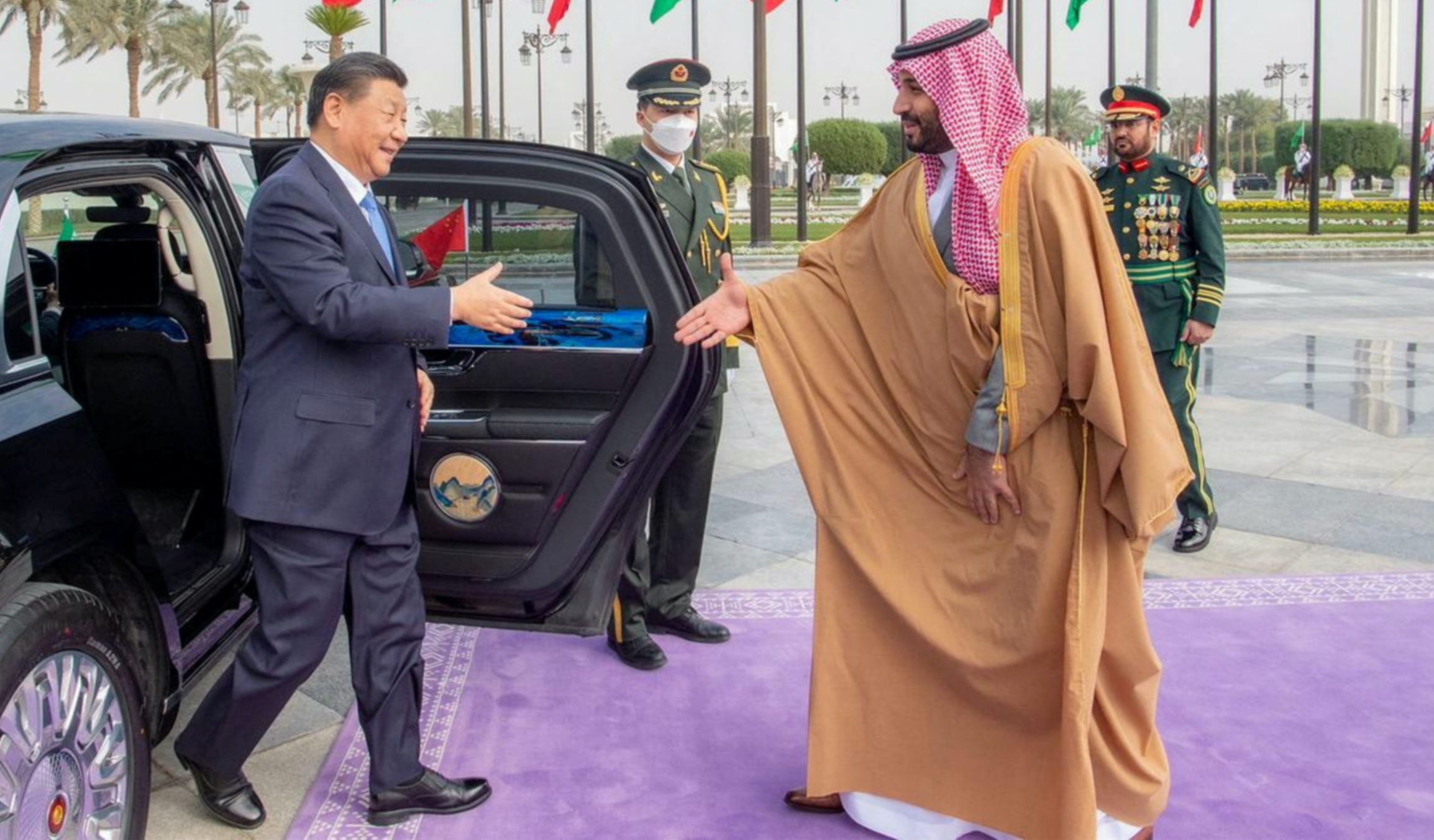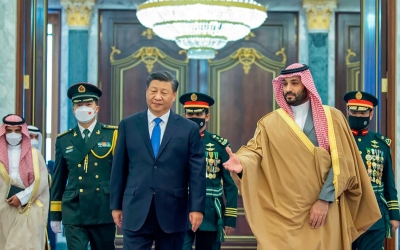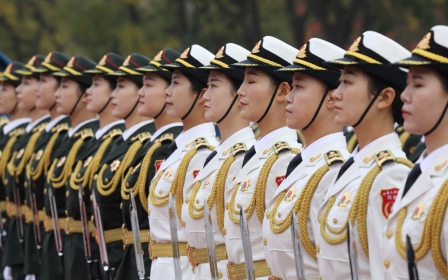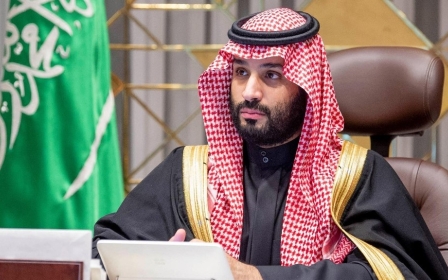Saudi Arabia and China announce around $30bn in deals during Xi visit

Chinese President Xi Jinping heralded a “new era” of relations between his country and the Arab world as China and Saudi Arabia on Thursday signed a series of agreements reportedly worth around $30bn.
The 34 deals struck between Chinese and Saudi firms are in green energy, information technology, cloud services, transport, construction and other sectors, state news agency SPA reported.
The announcement of a comprehensive strategic partnership agreement between Saudi Arabia and China followed a lavish welcome for the Chinese president, who was received by Saudi Crown Prince Mohammed bin Salman at his official Yamamah Palace residence.
In contrast to the muted reception given to US President Joe Biden in July, Xi has enjoyed an escort from Saudi air force jets, a 21-gun salute and the accompaniment of the Saudi Royal Guard riding Arabian horses and carrying Chinese and Saudi Arabian flags, in a grand display of pomp and pageantry.
The Chinese president arrived in Saudi Arabia on Wednesday and was greeted warmly by Mohammed bin Salman. The two chatted as their national anthems played and the Saudi crown prince wished Xi and his delegation a pleasant stay. Xi also met with Saudi Arabia's King Salman.
According to the official Saudi press agency, two-way trade between China and Saudi Arabia totalled $80bn in 2021 and $27bn in the third quarter of 2022.
The announcement of this new raft of deals comes as China’s influence in the Middle East grows and US officials grow increasingly concerned about Washington’s waning power abroad. On Wednesday, the US said the visit was an example of Chinese attempts to exert influence around the world and that it would not change its policy towards the Middle East.
Relations between Washington and Riyadh have been strained in recent years by the murder of journalist Jamal Khashoggi in 2018 and by Mohammed bin Salman’s recent defiance in the face of US anger over oil supplies and pressure from Washington to help isolate Russia.
Middle East leaders come to visit Xi
Xi is due to meet with other Gulf oil producers and attend a wider gathering of Arab leaders on Friday, with Egyptian President Abdel Fattah al-Sisi and Sudanese de facto head of state Abdul Fattah al-Burhan arriving in Riyadh on Thursday.
Tunisian President Kais Saied, Palestinian Authority President Mahmoud Abbas, Iraqi Prime Minister Mohammed al-Sudani, Moroccan Prime Minister Aziz Akhannouch and Lebanese caretaker prime minister Najib Mikati have also all confirmed their attendance at the meeting.
'China and Arab states will continue to hold high the banner of non-interference in internal affairs, firmly support each other in safeguarding sovereignty'
- Xi Jinping
Saudi Arabia and other Gulf states like the United Arab Emirates have said that they would not choose sides between global powers and were diversifying partners to serve national economic and security interests.
Xi has described his visit as a “pioneering trip” to “open a new era of China’s relations with the Arab world”, adding in an article for Saudi state media that China and Arab countries would “continue to hold high the banner of non-interference in internal affairs, firmly support each other in safeguarding sovereignty and territorial integrity".
China, the world's biggest energy consumer, is a major trade partner of Gulf states and bilateral ties have expanded as the region pushes economic diversification, raising US hackles about Chinese involvement in sensitive Gulf infrastructure, Reuters reported.
The Saudi energy minister on Wednesday said Riyadh would remain a “trusted and reliable” energy partner for Beijing and that the two would boost cooperation in energy supply chains by establishing a regional centre in the kingdom for Chinese factories.
Many of the agreements struck in Riyadh are in the energy sector, with oil giant Saudi Arabia having talked of diversifying its economy as part of its Vision 2030 plan, which dovetails with China’s Belt and Road infrastructure initiative.
Middle East Eye propose une couverture et une analyse indépendantes et incomparables du Moyen-Orient, de l’Afrique du Nord et d’autres régions du monde. Pour en savoir plus sur la reprise de ce contenu et les frais qui s’appliquent, veuillez remplir ce formulaire [en anglais]. Pour en savoir plus sur MEE, cliquez ici [en anglais].





